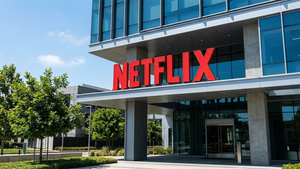
NEW YORK, NY – October 30, 2025 – Esquire Financial Holdings, Inc. (NASDAQ: ESQ) today announced a regular quarterly cash dividend of $0.175 per share for its common stockholders. This declaration, with a record date of November 14, 2025, and a payment date of December 1, 2025, reinforces the institution's commitment to returning value to its shareholders and signals robust financial health in a dynamic market environment. For investors, this consistent payout offers a predictable income stream and serves as a strong indicator of the company's stability and confidence in its future earnings.
The decision to maintain and grow its dividend underscores Esquire Financial Holdings, Inc.'s strong operational performance and prudent capital management. In an era where financial institutions navigate complex economic headwinds, a reliable dividend policy can significantly enhance investor trust and contribute to a more favorable market perception of the company.
Detailed Coverage: A Dividend Reflecting Strength and Consistency
Esquire Financial Holdings, Inc. has formally declared a regular quarterly cash dividend of $0.175 per share of common stock. This latest declaration, made on October 30, 2025, continues a well-established pattern of consistent shareholder returns. The dividend is set to be paid out on December 1, 2025, to stockholders of record as of November 14, 2025. This brings the annual dividend to $0.70 per share, reflecting a sustained commitment to its investors.
The company has a commendable history of increasing its dividend, demonstrating growth for four consecutive years. Historical data shows a steady climb in dividend payments, from $0.09 per share in mid-2022 to the current $0.175 per share in 2025. This upward trajectory is a testament to ESQ's consistent profitability and strong cash flow generation. The dividend payout ratio for Esquire Financial Holdings, Inc. remains relatively low, typically ranging between 11% and 12%. A conservative payout ratio is a key indicator of dividend sustainability, suggesting that the company retains a significant portion of its earnings, which can be reinvested into the business for future growth or serve as a buffer during economic downturns, thereby safeguarding future dividend payments.
The decision to declare and maintain this dividend primarily rests with the Board of Directors of Esquire Financial Holdings, Inc. The Board meticulously reviews the company's financial performance, profitability, and overall health to ensure sufficient "distributable profits" are available. Management plays a crucial supporting role by providing the financial data and strategic insights that inform the Board's dividend-setting process. This collaborative approach ensures that dividend decisions are financially sound and aligned with the company's long-term strategic objectives.
Impact on Companies: Building Confidence in a Competitive Landscape
Esquire Financial Holdings, Inc.'s (NASDAQ: ESQ) consistent dividend payout, specifically the recent $0.175 per share declaration, has multifaceted impacts on the company, its investors, and the broader financial sector. For ESQ itself, the most immediate benefit is a significant boost in investor confidence. In the banking industry, where balance sheets can be intricate, a reliable and growing dividend serves as a clear signal of financial health, management's prudence, and the company's ability to generate sustainable earnings. This transparency helps reduce perceived business uncertainty, attracting and retaining a loyal investor base.
This consistent performance also positively influences stock valuation. Companies with a strong dividend history are often viewed as stable and mature, making them attractive to long-term and income-focused investors. The increased demand can contribute to a higher stock price and potentially create a "price floor" during market volatility. ESQ's healthy and sustainable payout ratio further reinforces a positive valuation outlook by assuring investors that the dividend is well-covered by earnings. Furthermore, consistent dividends reflect financial stability. For a financial institution, regular payouts signal to all stakeholders – including depositors and creditors – that the bank is solvent and well-managed. While excessive dividends could pose risks by reducing capital buffers, ESQ's low payout ratio indicates a balanced strategy, prioritizing both shareholder returns and capital retention, a crucial aspect monitored by regulators.
For ESQ's investors, the benefits are direct and tangible. The quarterly $0.175 per share dividend provides a steady income stream, highly appealing to income-seeking individuals and those building dividend-focused portfolios. This reliability often leads investors to perceive ESQ as a less risky investment. In the broader banking sector, ESQ's consistent dividend policy can create competitive pressure. When a regional bank like ESQ demonstrates robust dividend growth, it can prompt peers to re-evaluate their own dividend strategies to remain competitive for investor capital. This also contributes to a positive market perception of regional banks as a whole, signaling overall stability and sound management within the sector, particularly important amid scrutiny of smaller banks. Finally, a bank's ability to consistently pay and increase dividends is often seen as an indirect signal of regulatory approval and strong capital buffers, given the intense oversight on bank dividend policies.
Wider Significance: A Beacon of Stability in Evolving Financial Tides
Esquire Financial Holdings, Inc.'s (NASDAQ: ESQ) consistent dividend policy, highlighted by its latest declaration, resonates deeply within the broader financial industry, particularly as the sector navigates complex trends in late 2025. Regional banks continue to grapple with concerns over commercial real estate (CRE) exposure, heightened regulatory scrutiny, and fluctuating interest rates. Amidst these challenges, ESQ's ability to maintain and grow its dividends aligns with the trend among financially sound institutions that prioritize investor reassurance and demonstrate resilience. Its low payout ratio (around 11-12%) underscores dividend sustainability, a critical factor for investors in an environment where some regional banks face scrutiny over their balance sheet health.
The ripple effects of ESQ's policy are noteworthy. For competitors, a consistently performing regional bank like Esquire can establish a "de facto benchmark" for shareholder returns, potentially pressuring peers to review and adjust their own dividend strategies. This can further differentiate stronger, well-capitalized institutions from those facing greater financial headwinds. For partners, including depositors and business collaborators, consistent dividends signal solvency and disciplined management, fostering trust and encouraging long-term engagement. In an economically uncertain climate, a reliable dividend payer like ESQ can enhance its reputation, attracting stable deposits and solidifying partnerships.
Regulatory bodies maintain stringent oversight on bank dividends, utilizing frameworks to conserve capital, especially during economic downturns. ESQ's conservative payout ratio aligns well with regulatory expectations for capital retention, providing a buffer against economic volatility. Historically, banks have used dividends as a crucial signal of financial strength. While the 2007-2009 financial crisis saw many banks cut dividends under pressure, those that maintained stability, like United Overseas Bank (UOB) post-pandemic, are viewed as financially robust. ESQ's consistent increases over the last four years, navigating recent economic uncertainties, positions it as a growing player in this signaling dynamic, echoing the resilience of some long-standing "Dividend Champions" among regional banks.
In the current economic climate, characterized by "higher-for-longer" interest rates, inflation, and geopolitical uncertainties, dividend sustainability is paramount. It signals financial health, prudent management, and resilience to economic shocks, providing a "financial and psychological buffer" for investors. ESQ's low payout ratio is a key indicator of this sustainability, ensuring it retains earnings to absorb potential losses or reinvest in growth. This approach is crucial for attracting and retaining investors, managing regulatory expectations, and differentiating itself in a challenging market.
What Comes Next: Navigating Growth and Challenges
Following its consistent dividend declaration and strong performance, Esquire Financial Holdings, Inc. (NASDAQ: ESQ) appears well-positioned for continued growth, though it must navigate a dynamic economic and regulatory landscape. In the short-term (next 1-2 years), ESQ is expected to see sustained growth in its niche markets, particularly in the legal industry and small businesses, driving commercial loan and deposit expansion. Its recent geographic expansion with a new Los Angeles banking location in August 2025, complementing its existing presence, is set to attract more full-service commercial banking clients nationally. Continued investments in technology for client relationships, lead acquisition, and risk management will also be crucial for driving efficiency and growth.
For the long-term (3-5+ years), analysts forecast sustained earnings and revenue growth, with EPS expected to grow by 4.5% per annum and return on equity at 17% in three years. ESQ aims to expand its market share in legal finance and may explore strategic partnerships or acquisitions to further broaden its reach. Leveraging technology, including AI and automation, will be key to maintaining a competitive edge.
Strategic pivots or adaptations could include diversifying its loan portfolio beyond its niche to mitigate concentration risks, especially within the New York metro multifamily real estate market. Enhancing digital offerings and fintech integration will be vital to cater to a tech-savvy clientele. Exploring new fee-based revenue streams beyond payment processing income, such as investment banking or wealth management, could offset potential pressures on net interest income.
Market opportunities abound in underserved niche markets and the ongoing digital transformation in banking. A more stable or declining interest rate environment, with the Federal Reserve initiating rate cuts in 2025, could stimulate loan demand. However, market challenges include interest rate volatility and potential net interest margin pressure from elevated deposit costs, cybersecurity risks, increased competition from larger institutions, and potential credit quality concerns from high consumer debt. The evolving and fragmented regulatory landscape, with increasing focus on financial resilience, operational resilience, and digital finance, also presents ongoing compliance challenges.
In a positive scenario, ESQ continues its strong execution, leading to sustained earnings growth and potential for increased dividends or share buybacks, resulting in positive stock performance. A moderate scenario sees steady performance with tempered growth, while a challenging scenario involving significant economic downturns or unforeseen regulatory changes could impact loan demand, asset quality, and profitability, potentially affecting dividend growth. Broader economic factors like interest rates, inflation, and the labor market, alongside an evolving regulatory environment focused on capital and liquidity rules, digital operational resilience, and consumer protection, will significantly influence ESQ's trajectory.
Comprehensive Wrap-up: A Testament to Prudent Management
Esquire Financial Holdings, Inc.'s (NASDAQ: ESQ) recent declaration of a regular quarterly dividend serves as a compelling testament to its robust financial health, prudent management, and unwavering commitment to shareholder value. The consistent and growing nature of these payouts, supported by a conservative payout ratio, firmly establishes ESQ as a beacon of stability within the regional banking sector, a quality highly prized by investors in today's intricate financial landscape.
Looking ahead, the market for ESQ and the broader banking sector appears poised for moderate growth, though accompanied by inherent complexities. While a lower interest rate environment is anticipated to stimulate loan demand, it may also exert pressure on net interest margins. Banks, including ESQ, will increasingly rely on diversified revenue streams and advanced technological integration, particularly AI, to drive efficiency and enhance customer experience. ESQ's strategic focus on underserved niche markets and its recent geographic expansion position it favorably to capitalize on these trends.
The lasting impact of ESQ's consistent dividend policy extends beyond immediate shareholder returns; it fosters a deeper sense of trust and confidence among investors, regulators, and partners. This reliability is crucial for attracting long-term capital, reinforcing the bank's standing as a financially sound institution, and potentially contributing to a more favorable stock valuation.
For investors, vigilance remains key in the coming months. It is imperative to closely monitor ESQ's sustained loan and deposit growth, its ability to manage net interest margin in a fluctuating rate environment, and its efforts to diversify non-interest income. Furthermore, attention should be paid to the company's continued investments in technology and its adaptability to evolving regulatory landscapes. Keeping an eye on broader macroeconomic indicators, such as interest rate trajectories, inflation, and consumer spending, will provide crucial context for the performance of ESQ and similar financial institutions. By carefully assessing these factors, investors can make informed decisions and navigate the evolving dynamics of the banking sector.
This content is intended for informational purposes only and is not financial advice





